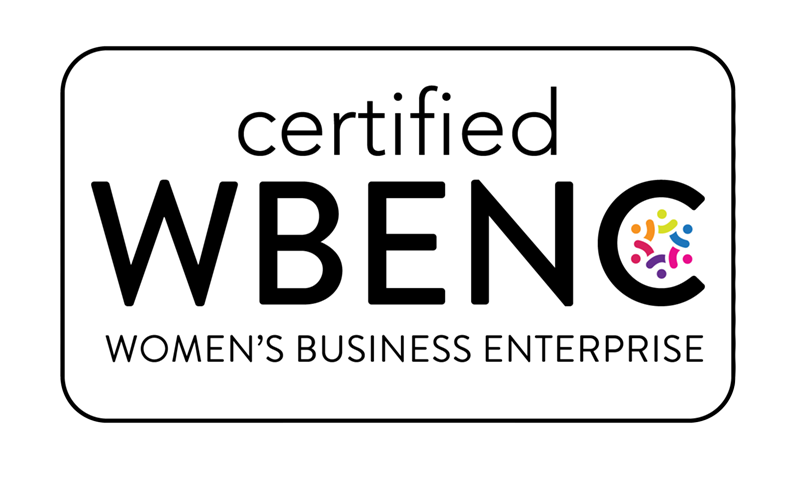Importer of Record (IOR): Understanding Responsibilities and Risks -
Part 22
Audio Conversation:
Full Blog Article:
For small and midsize businesses venturing into the complex world of global trade, the concept of an Importer of Record (IOR) can feel overwhelming. Yet, understanding the role, responsibilities, and risks associated with being an IOR is essential to ensuring smooth import operations and avoiding costly compliance pitfalls.
This blog unpacks the critical aspects of the IOR role, providing clarity on what it means, what is expected of you, and how to mitigate risks. Let’s explore the intricacies of this vital trade function and how it applies to your business.
What Is an Importer of Record (IOR)?
An Importer of Record (IOR) is the entity or individual legally responsible for ensuring that imported goods comply with all local laws and regulations of the destination country. In the U.S., the IOR is tasked with clearing customs, paying applicable duties, and maintaining accurate records for compliance purposes.
This role is often taken on by the owner or purchaser of the goods, or when designated by the owner, purchaser, or consignee, a licensed Customs broker.
Responsibilities of the Importer of Record (IOR)
The responsibilities of the IOR encompass various stages of the import process. Here are the key areas:
1.
Customs Compliance:
As the IOR, you are responsible for ensuring that imported goods meet U.S. Customs and Border Protection (CBP) requirements. This includes:
- Proper classification of goods under the Harmonized System (HS) Code (as discussed in Article 3 "Harmonized System(HS) Codes: "Cracking the Code!" How are products classified for International Trade?").
- Ensuring goods comply with trade agreements, if applicable, such as the USMCA (see Article 17 "The U.S.-Mexico-Canada Agreement (USMCA): What It Means for North American Trade").
- Confirming that products meet regulatory requirements, such as labeling standards (covered in Article 9 "Country of Origin Marking: Why is it important to label products Correctly?").
2.
Payment of Duties and Taxes:
The IOR must accurately calculate and pay applicable customs duties, taxes, and fees. For instance, failure to account for Section 301 tariffs (see
Article 19"Navigating U.S. Trade Relations with China: Opportunities and Challenges") can lead to significant penalties.
3.
Recordkeeping:
IORs must maintain records of import transactions for at least five years, as required by CBP. These records include invoices, bills of lading, and customs declarations.
4.
Security Filing Requirements:
IORs must adhere to security filing requirements, such as the Importer Security Filing (ISF), to ensure supply chain transparency. Non-compliance with filing deadlines can result in hefty fines.
5.
Handling Trade Violations:
Should a compliance issue arise, the IOR is the first point of contact for audits, penalties, or disputes. Having an Incident Response Plan (IRP), as detailed in
Article 11
"Incident Response Plans (IPR): What to do When A Compliance Issue Arises?", is critical for mitigating risks.
Risks of Being an Importer of Record
While the role of an IOR is essential, it comes with inherent risks. Businesses must be aware of these risks and take steps to mitigate them effectively.
1.
Compliance Penalties:
Failure to comply with CBP regulations can result in penalties, shipment delays, or seizure of goods. For example, inaccurate tariff classification or undervaluation of goods could trigger audits and fines.
2.
Liability for Trade Violations:
As the IOR, you are liable for any legal violations associated with the imported goods. This includes mis-declared items, import bans, or violations of intellectual property rights.
3.
Financial Risks:
IORs are financially responsible for duties, taxes, and fines. Inadequate planning or errors in valuation (as covered in
Article 15 "Valuation Methods: Ensuring Accurate Customs Declarations for Import and Export") can lead to unexpected financial burdens.
4.
Reputational Damage:
Non-compliance or involvement in illegal trade activities can harm your brand’s reputation, particularly in today’s environment of increased supply chain scrutiny (see
Article 12
"Supply Chain Security: How to Safeguard Your Business from Global Trade Risks").
How to Mitigate IOR Risks
Small and midsize businesses can take the following steps to reduce risks as an IOR:
1.
Partner with Experts:
Collaborate with customs brokers, trade compliance consultants, or third-party IOR service providers to ensure compliance. Brokers can provide guidance on valuation, classification, and documentation requirements.
2.
Conduct Pre-Shipment Due Diligence:
Before shipping goods, verify the accuracy of invoices, ensure compliance with labeling laws, and check the Denied Parties List (see
Article 6
"Denied Parties List: Why should you check these list before doing business with Foreign Entities?").
3.
Invest in Training and Technology:
Equip your team with the knowledge and tools to navigate trade compliance effectively. Consider trade compliance software to streamline processes (as explored in
Article 10
"Trade Compliance Software: How can Technology Simplify the Compliance Process").
4.
Develop an Incident Response Plan:
Be prepared for compliance issues with a well-defined Incident Response Plan (see
Article 11
"Incident Response Plans(IPR): What to do When A Compliance Issue Arises?"). This helps mitigate risks and reduces the impact of potential violations.
5.
Stay Informed:
Keep up with changes in trade regulations, tariff rates, and compliance requirements. Subscribing to resources like
The Global Trade Navigator newsletter
can help you stay updated.
How a U.S. Customs Broker Can Help
Navigating the complexities of IOR responsibilities can be daunting, especially for SMBs new to global trade. This is where a U.S. customs broker becomes invaluable.
A customs broker can:
- Ensure proper classification of goods to avoid misclassification penalties.
- Calculate accurate duties and taxes, helping you avoid financial surprises.
- Handle documentation and filing requirements, such as ISF.
- Act as your IOR if you prefer to outsource this role, allowing you to focus on your core business.
Partnering with a customs broker reduces your workload, minimizes risks, and ensures compliance with U.S. trade laws.
Summary
Being an Importer of Record (IOR) is a critical role that comes with significant responsibilities and risks. Here are the main takeaways:
- The IOR is responsible for customs compliance, payment of duties, and recordkeeping.
- Common risks include compliance penalties, financial liabilities, and reputational damage.
- Mitigating these risks requires collaboration with experts, pre-shipment due diligence, and investment in compliance technology.
- U.S. customs brokers play a vital role in supporting businesses by managing IOR responsibilities and ensuring compliance.
Frequently Asked Questions (FAQs)
Q1: Can I outsource the role of Importer of Record (IOR)?
Q2: Yes, businesses can outsource the IOR role to a consignee or customs broker. This is especially beneficial for SMBs without the resources to manage complex compliance requirements.
Q2: What happens if I misclassify goods during import?
A2:
Misclassification can lead to penalties, delays, and audits. Partnering with a customs broker ensures accurate HS Code classification and compliance with U.S. regulations.
Q3: How can I minimize financial risks as an IOR?
A3:
Minimize financial risks by conducting due diligence, investing in compliance technology, and staying updated on tariff changes. Collaborating with a customs broker can also help ensure accurate valuation and duty calculations.
Looking Ahead:
In the next article, we’ll explore “Authorized Economic Operator (AEO) Programs: Boosting Supply Chain Security.” Learn how these programs enhance trust, efficiency, and security in global trade, and discover how your business can benefit.
References:
1. U.S. Customs and Border Protection (CBP): Link
2. Electronic Code of Federal Regulations (eCFR): Link
This article aligns with the ongoing goal of Unlocking Global Markets by providing actionable insights tailored to SMBs navigating the complexities of global trade.
If you're curious to see how we can help, please visit our website
http://magneticprecision.com/
For inquiries and questions, contact us at
inquiries@magneticprecision.com.
Stay tuned for more insights as we continue our journey to mastering global trade compliance!


